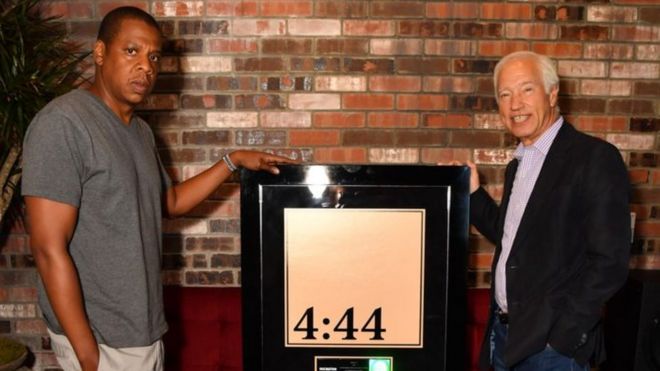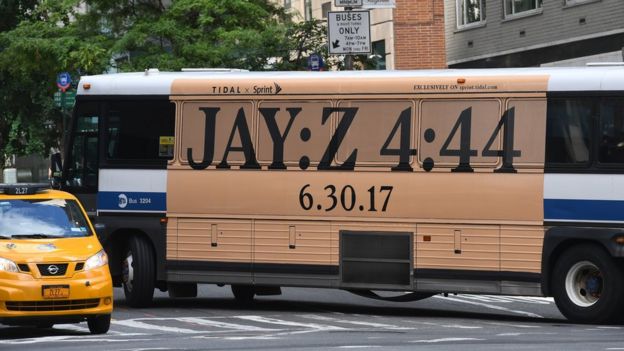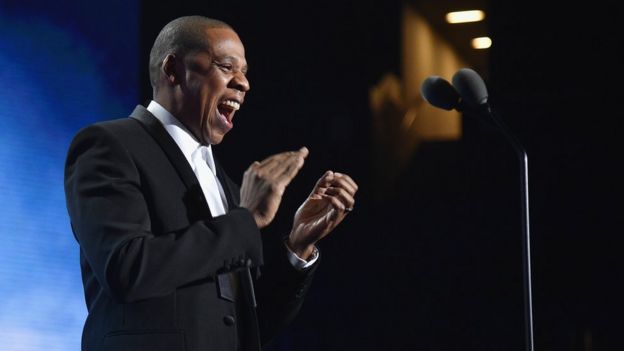Jay-Z's digital-only album goes platinum in under a week

Jay-Z's digital-only album 4:44 has gone platinum within five days - despite limits on who could access it.
The music was only available on Tidal, the star's own streaming service, and to customers of US mobile firm Sprint.
The Recording Industry Association of America (RIAA) platinum certification, which requires more than one million sales, is rare for digital-only albums.
The RIAA only started counting digital streams last year, with 1,500 plays considered equal to one album sale.
Marketing tricks
Sprint was a significant contributor to 4:44's early success, giving away large numbers of the album to its users for free.
 GETTY IMAGES
GETTY IMAGES
The firm is a major shareholder in Tidal, which launched in March 2015.
It is not the first time Jay-Z, whose real name is Shawn Carter, has partnered with a phone company to generate a sales splash.
His 2013 limited-release album Magna Carta Holy Grail, which was initially only made available to some Samsung users, also went platinum.
Jay-Z has generated a lot of buzz with his latest album, which has ten songs and appears to confirm that his mother is "in a same-sex relationship".
Fans are speculating that elsewhere on the album, JAY-Z responds to Beyonce's Lemonade album and apologises for cheating.
Is Tidal making waves?
The American rapper has been looking to translate his chart success to his music streaming venture Tidal.
Jay-Z has had 13 solo platinum albums, which his label Roc Nation says is more than any other hip-hop artist.
 GETTY IMAGES
GETTY IMAGES
Last year Tidal said it had three million subscribers but some have questioned the accuracy of those numbers.
Spotify, which now has more than 140 million active monthly users, remains the market leader but has yet to turn a profit.
The number of subscribers paying for its premium service, which does not have advertising, rose by 20 million in 2016 to 48 million.
Apple Music, a key competitor, has doubled its number of subscribers over the last year to 27 million. Unlike Spotify it does not offer a free tier.



![Connected Development [CODE] - Launching of Its Election Monitoring Tool “UZABE”](https://blogger.googleusercontent.com/img/a/AVvXsEhuvfrIxiltRPh4TrIipS6JP1LEa2y8oIrwLLGAoRyBN6Vr9zViZ1LuQ-Ks0VOwmfB1S15ql0bZAUaTLUT2UTc2a2oqxiMPd2msZmRD3X3Ie0YKJOnaW5Q3idcik82mt3PVvr2uroWhj-uwv-Al-IUdehkL0icJw5iH_b16Zwpv0aX2RdUwjKcKYTbYCA=s72-c)






Post a Comment